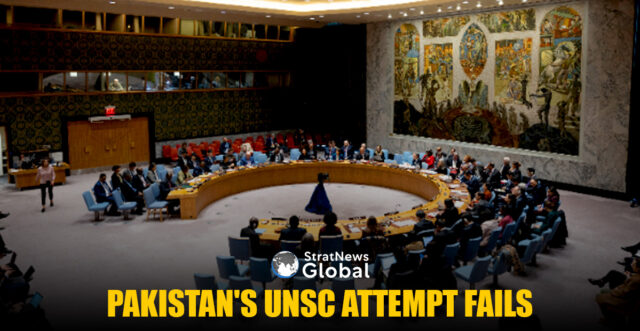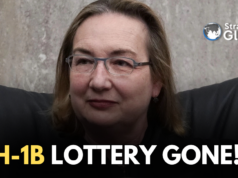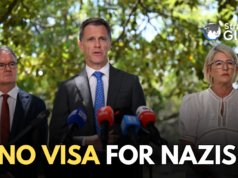Amid rising tensions between India and Pakistan, a closed-door meeting of the United Nations Security Council (UNSC), held at Pakistan’s request, ended without any statement, resolution, or official response.
The session came shortly after UN Secretary-General Antonio Guterres warned that the situation had reached its most volatile stage in years.
Pakistan’s ‘Baseless Allegations’
Pakistan’s Permanent Representative to the UN, Asim Iftikhar Ahmad, once again used the Security Council platform to level baseless allegations against India.
Attempting to deflect attention from the recent Pahalgam terrorist attack, which claimed 26 civilian lives, Pakistan revived the Kashmir issue, accusing India of military escalation and inflammatory rhetoric.
‘Act Of Aggression’
Ahmad also labelled India’s decision to suspend the Indus Waters Treaty as an “act of aggression,” a move that New Delhi views as a calculated effort to distract from Pakistan’s continued support for cross-border terrorism.
As a non-permanent member of the 15-nation UNSC, Pakistan had called for confidential consultations.
Closed Consultations
Greece, holding the Council presidency for May, scheduled the meeting for the afternoon of May 5.
Unlike formal UNSC sessions conducted in the iconic chamber, this meeting took place in an adjoining consultation room.
Following the session, Ahmad addressed the media outside the chamber.
Tough Questions
In the closed consultation, diplomats reportedly pressed Pakistan with “tough questions” regarding Lashkar-e-Taiba’s (LeT) suspected role in the Pahalgam terror attack, firmly rejecting the “false flag” theory promoted by Islamabad.
The session featured widespread condemnation of the attack, with several members stressing the importance of accountability.
Concerns were also raised over reports that the assailants specifically targeted tourists based on their religious identity, according to reports.
Not The First Time
This is not the first time Pakistan has tried to raise the Kashmir issue at the UN.
In August 2019, China requested a similar closed consultation after India revoked Article 370, which granted special status to Jammu and Kashmir.
That meeting also concluded without any resolution or statement, as the majority of UNSC members reaffirmed that the matter should be resolved bilaterally between India and Pakistan.
Volatility At A High
Earlier on Monday, UN Secretary-General Guterres expressed grave concern over the deteriorating situation between the two nuclear-armed neighbours.
“It pains me to see relations reaching a boiling point,” he said, noting the sharp escalation in tensions after the April 22 Pahalgam attack.
UN Chief Condemns Attack
Guterres condemned the targeting of civilians, calling it unacceptable and demanding that those responsible be held accountable through lawful means.
He urged both sides to exercise maximum restraint and avoid any military escalation that could spiral out of control. “A military solution is no solution,” he emphasised, calling for de-escalation and dialogue.
(With inputs from IBNS)





